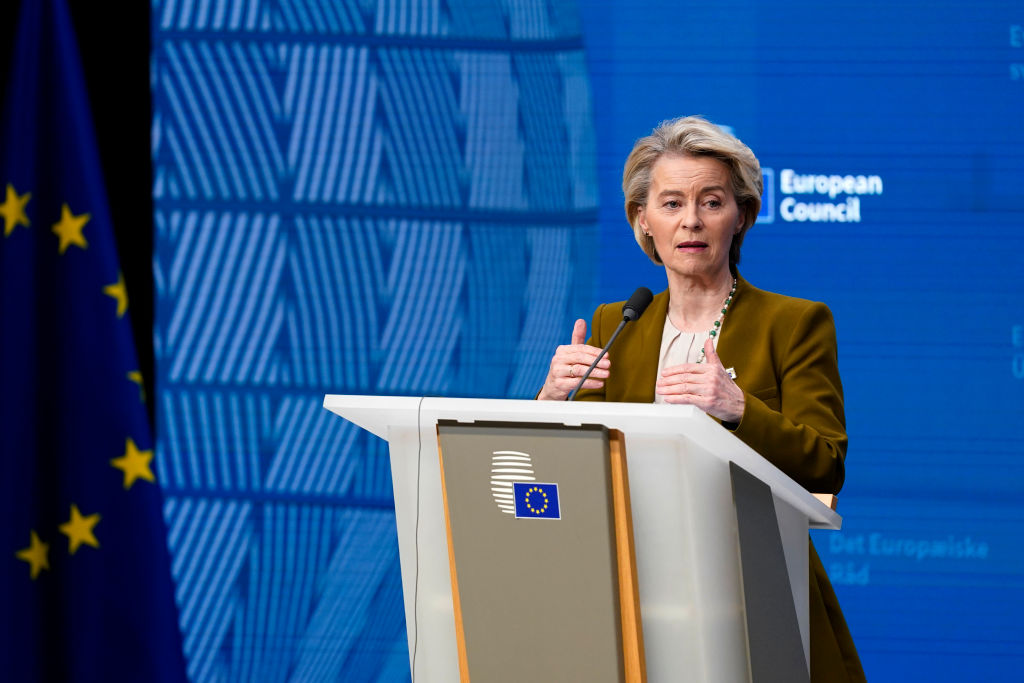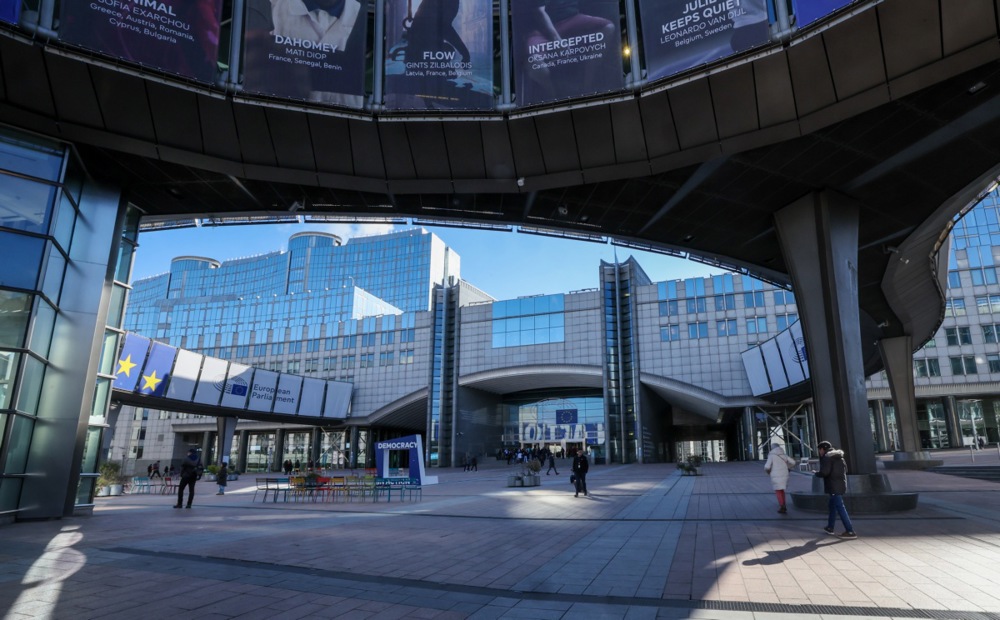The European Court of Auditors (ECA) has criticised the European Union for its “opaque” funding practices and “fragmented and unreliable” information.
On April 7, the European financial watchdog published its long-awaited report on the contentious issue of transparency regarding the EU funding of non-governmental organisations.
This topic came to the forefront in the European Parliament after media revelations in January that, under former Commission Vice President Frans Timmermans, the European Commission had paid “green” NGOs as part of an alleged covert lobbying scheme aimed at secretly influencing MEPs, businesses and European administrations.
While huge amounts of taxpayer money were given to NGO’s – €4.8 billion was granted by the EC and €2.6 billion by EU member states – the ECA found in its report “there is no reliable overview of EU money paid to NGOs”.
“Transparency is key to ensuring credible participation by NGOs in EU policymaking,” said Laima Andrikienė, the ECA member in charge of the report.
“However, despite some progress since our last audit, the picture of EU funding for NGOs remains hazy, as information on EU funding – including lobbying – is neither reliable nor transparent.”
European Union taxpayers’ money has been used to fund fringe groups actively lobbying against EU policies. https://t.co/29dDpY66h5
— Brussels Signal (@brusselssignal) February 12, 2025
According to the ECA, information was published in a fragmented way, which hampered transparency, impeded analysis of whether EU funds were overly concentrated on a small number of NGOs and restricted insight into the role of NGOs in EU policies.
Of the more than 4,400 NGOs to have received grants, 30 received more than 40 per cent of total funds during the 2014-2023 period, or €3.3 billion, the ECA found.
While the EC did make some progress in collecting information on EU funding granted to NGOs, the ECA stressed that “weaknesses persist in the way that information is disclosed”.
The auditors found that the EC’s oversight of who qualifies as an NGO was seriously lacking. From 2021 to 2023, more than 90 per cent of funding recipients — in excess of 70,000 organisations — were not clearly labelled as NGOs.
Adding to this bureaucratic wrangle, the ECA noted that member states did not monitor or report on EU funding granted to NGOs. EU member states had different definitions of NGOs.
A definition used by the EU, “cannot ensure that NGOs are correctly classified in the EU’s financial transparency system”, the ECA said.
While entities could self-declare as NGOs, the EC was in the dark regarding who may have influenced them or what full range interests they pursued.
In one example, the ECA pointed to a large research institute, “categorised as an NGO while its governing body was composed solely of government representatives”.
Furthermore, “the Commission did not clearly disclose the information it held on NGO advocacy activities that were financed by EU grants”, it said.
The ECA noted that the EC only issued guidance that grant agreements should not require recipients to lobby EU institutions during their audit.
Between 2021 and 2023, the EC committed €1.36 billion through Erasmus+ and the European Solidarity Corps to implementing partners; this was reported in the Financial Transparency System as funding for NGOs.
But, according to internal data, only 10 per cent of that money actually went to NGOs — 90 per cent was passed on to other types of organisations. In some cases, non-NGO partners may have later transferred funds to NGOs.
The ECA also found that “EU fund managers do not proactively search for potential NGO breaches of EU values, such as the rule of law and human rights, but rely mainly on self-declarations”.
“Checks on funding sources that can provide useful information about who stands behind NGOs are also lacking.”
While NGOs could be transparent of their own accord, the ECA found that on a scale from 0 to 100, with 100 being fully transparent, the average score was only 55 in its sample, with NGO’s lacking transparency about their social bases, supports and financial statements.
In one case, the ECA found an operating grant with undisclosed advocacy, where an NGO was meeting with MEPs and high-level representatives of the EC.
On April 1, after intense pressure from some MEPs, the EC admitted that grants from the €5.4 billion LIFE programme, the EU’s funding instrument for environmental and climate action, had been misused to lobby the EU itself.
In its reply to the report, the EC said it would follow some of the recommendations, such as improving financial transparency and verifying adherence to EU values — but these actions were only planned for 2029 and 2028.
“This investigation reaffirms what BBB [the Farmer Citizen Movement] signalled in its LIFE objection: That much has gone wrong with the transparency around and deployment of NGO funding by the European Commission, including from the LIFE fund,” Dutch EPP MEP Sander Smit told Brussels Signal on April 8.
“From now on, this must change and, moreover, the separation of powers must be respected,” he added.
Frank Furedi, executive director of think-tank MCC Brussels, said in a statement: “The systemic opacity revealed by the European Court of Auditors is yet another indication of how power and resources are monopolised by a few favoured players, all while the general public remains kept in the dark.
“This report shows that the EU’s supposed commitment to transparency and accountability is nothing more than a facade.”
Hungarian MEP Csaba Dömötör told Brussels Signal that the findings of the report were “not surprising” given his own experiences.
“The report makes it abundantly clear that there is a significant lack of comprehensive information regarding which NGOs receive EU funding and for what purposes. This absence of transparency is deeply concerning”, he said.
“The figures presented are startling: Billions have been spent on NGOs in a non-transparent manner, representing approximately 4 per cent of the EU’s total budget.
“Even more shocking is the concentration of this funding – 40 per cent of it went to just 30 NGOs. This indicates that the financial structure is heavily concentrated and lacks fair distribution.
“A particularly important aspect of the report is the auditor’s conclusion that most of these NGOs are almost entirely dependent on EU funding. In fact, they would not exist without it,” Dömötör said.
“This calls into question their legitimacy as independent elements of civil society. Instead, what we are dealing with appears to be political activist groups operating under the guise of civil society.”
He noted that a political movement associated with former Belgian prime minister Guy Verhofstadt had reportedly received €15 million in funding over recent years.
“Furthermore, there are cases where NGOs that received hundreds of thousands of euros from the European Commission went on to sue a member state for protecting its borders,” Dömötör added.
“This kind of action has nothing to do with civil society in its traditional sense. In another case, NGOs focusing on green issues actively lobbied against the interests of farmers, rather than representing them.
“This amounts to political lobbying — funded by taxpayers — against the very citizens who are footing the bill.”
Regarding the EC’s reply, Dömötör said: “The recommendations are clear: We must not wait years for transparency. The public deserves to know, now, where and how their money is being spent.”
The Hungarian MEP has been in a fight with the EU for more transparency and said that some MEPs had received a list of the NGOs that were currently funded by the EU.
He called for that list to be made public.
He also told Brussels Signal that an official letter was sent to the European Ombudsman some days ago, formally raising the concerns.
Conservative MEPs looking for more transparency regarding EU funding for activist NGOs said they had the door slammed in their faces by the European Commission. https://t.co/j2ZCTqsQ6T
— Brussels Signal (@brusselssignal) April 2, 2025





